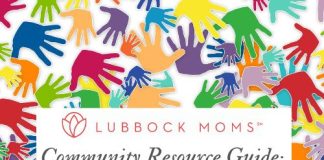 Before I open my mail for your reading pleasure, let me give a little background information. This letter I wrote to my parents after my attempt to drop my 9-year-old son off for a week-long Bible camp went wrong. My hope in sharing our mail is that our experience in some way helps you!
Before I open my mail for your reading pleasure, let me give a little background information. This letter I wrote to my parents after my attempt to drop my 9-year-old son off for a week-long Bible camp went wrong. My hope in sharing our mail is that our experience in some way helps you!
“Mom and Dad,
I want to apologize for how things went this weekend, trying to take Jacob to camp. Dad, you apologized for trying to push him to go, but I am the one who pushed the hardest—I knew he didn’t want to go but drove him to Brady in hopes that he’d get there and see how much fun he’d have and decide he’d be ok.
I also want to formally say here that I cannot judge any misstep you take as grandparents of a kid with ADHD and social anxiety because I make 100 more missteps. Every. Single. Day.
However, I want to address a few things that I believe are underlying issues. I know they have been problems for John and me. I can imagine that they are also problems for our family—grandparents, aunts, uncles, and cousins.
1) Our child with ADHD and Social Anxiety is not a typical kid. According to research (and also mentioned in the article linked here), Jacob is more like a 7-year-old in social and emotional maturation. This article addresses how we, as family and caregivers, understand these delays:
Your Child Is Not Giving You a Hard Time. Your Child Is Having a Hard Time.
I know it’s hard, but we cannot will him into 9-year-old behavior and thinking. It’s not a matter of better discipline, better consequences, or better strategies. Now, there’s nothing wrong with making efforts to be better in our interactions with him. We should do that. That article gives ‘do’s and don’ts’ about the language we should use with and around kids like Jacob.
However, we must be all on the same page here about one thing: Jacob is who he is. We can help him learn to be better. We can learn to handle him better. But he is who he is. He is currently a 7-year-old in a 9-year-old’s body.
2) We are all mourning the loss of a typical kid. It’s true. One of the main reasons I couldn’t stop crying on Sunday is because I was lamenting that my 9-year-old isn’t average. And this mourning process happens every single day for me. I imagine that the more examples you witness of Jacob’s atypical or delayed behavior, you, too, will mourn a little more.
Mom, you probably mourned just a little bit when Jacob threw himself on the floor Sunday morning in class. And Dad, you regretted when your grandson didn’t jump right up and walk in the mess hall with the other kids. I did, too. I mourn my typical kid’s loss every morning when we are trying to get out the door on time, and he acts like a 2-year-old. Every single time he squeals like a baby. Every single time he doesn’t obey. Every time our 7-year-old doesn’t act more responsible or kind or truthful, etc.
This is hard. In a way, I feel like I’ve failed y’all in not giving you a typical set of grandchildren. There are so many things I wish my kids would do, but that’s not who they are. But I do know this: we are doing our absolute best to rear them to be loving, Christ-following young men. I also know this: kids are resilient, and God is faithful!
As always, we covet your prayers! We make so many mistakes!!! But God’s got our backs!!
We love y’all and look forward to seeing y’all Friday!!”
This was such a hard letter to write.
It was hard to swallow my pride and apologize to my parents.
While I was angry at my dad and frustrated and sad about my son, I wanted to hold everything in. I had no control—I could not drive away from camp without someone else much stronger holding him back while I drove away. I wanted to stay mad at my dad for trying to pull my son into the dining hall. We made a scene. Not an ugly one. Probably only a few people even noticed, but I felt like the whole camp was watching. And I was mad. I was so upset that I drove away from camp sobbing. I was embarrassed that my mom had to peel the sheets off my son’s bunk and pack up his things. I was sad that my kid couldn’t stay at camp even knowing he’d see his grandparents every day.
I also ventured out and tried to educate my parents in this letter.
I wanted them to know that I do struggle (as if they didn’t already know) parenting a child with ADHD and social anxiety. But, I also felt like there were things my parents struggled to understand about our special needs child.
My parents raised pretty typical kids for the most part. At least none of us ever had a formal diagnosis for our quirks! I felt called to help my parents understand just a little bit better how to handle their grandson. That was hard to do. I’m blessed that my parents are gracious, forgiving, and so very loving. They apologized, too, and they appreciated the letter. What a blessing! I know that isn’t the case for everyone who tries to educate their family and friends.
I would be lying if I said no one told me how hard it would be to have a child with “invisible disabilities.”
I have a degree in Family and Consumer Sciences, so I studied and have taught child development and human development quite a bit. I also have a master’s in Special Education. I’ve worked with lots of kiddos with special needs. And finally, I have about 25 hours toward a Ph.D. in Human Development and Family Studies. All that to say, I knew all the stats, data, and anecdotal evidence about the challenges of ADHD for kids and their families.
My best advice here is that you speak often and much with your family, friends, child’s education team, and children (all of them—even the one with the invisible disability). Speak with them about what is typical. Speak about what to expect. Speak with them about strategies. Speak with them about whatever you need to make your life and that of your child more comfortable. It won’t be easy. But, your child will better be able to advocate for themself, and you will be advocating for your child.
When your child’s struggles aren’t talked about, they stay invisible. In my opinion, that’s more harmful than helpful when your child is still a child! It helps when people know what to expect from my kiddos.
And some people won’t listen. They still think they know better. They think they know what *really* causes ADHD. They believe this condition doesn’t exist. But, at least you will have done your best by your child. At least you have tried. And if you don’t want to reinvent the wheel, here’s a link to some instant ADHD free print-outs you can share with people in your child’s life.
God will [not] give you more than you can handle.
I detest when people use this “nugget” from scripture based on 1 Corinthians 10:12-14. The fact is, we live in a fallen world, and bad things do happen. Kids are born with ADHD. And there will be times when you aren’t sure if you can handle it.
I jokingly told my husband when I was pregnant with Jacob that God would give me a kiddo with special needs. I had a gut feeling that it would happen. Then, when my infant son wouldn’t latch at the breast for more than 2 minutes and wouldn’t look us in the eye when we held him, I thought, “Yep, it happened.” I knew then that he was a special little guy. And boy, was I right.
You won’t usually know this early that your child has something going on like Sensory Processing Deficits or ADHD (his first diagnosis was SPD), but the point here is to listen to your gut. I learned from my cousin, who also has a child with ADHD that the sooner I develop a paper trail of my concerns about my kiddo, the easier it will be to get his formal diagnosis later on. So, when my son was 2-years-old, he had a sensory eval scheduled with ECI. When he was 3-years-old, he had another eval with LISD. Neither of those led to a formal diagnosis or services, but they were early documentation of our concerns—and each eval showed some deficits in the areas where we were concerned.
When Jacob was four, and in Pre-K, he started having major behavior problems at school. We turned to an OT and Speech eval at Pediatric Therapy, Inc., where Jacob was finally diagnosed with motor delays, speech delays, and Sensory Processing Deficits. He was able to start therapy, finally. And his teacher saw improvements at school.
Then, when he started to struggle with hyperactivity and attention issues in 1st Grade, Jacob was evaluated by Dr. Rogers at PALS Developmental Center, and quickly diagnosed with ADHD. He began medication, and by the next six weeks, his reading fluency had increased from “significantly delayed for grade level” to “on grade level”! It was night and day!
If you have gut feelings and concerns about your child, don’t delay talking to their doctor. And do it early! Jacob has had a total of 5 diagnoses. I know what I know and can help my son in the way I do because we sought help! “Handling it” seldom is a solo act. Seek advice and seek it early.
I hope reading our mail today has helped you in some way.
> Know that you are not alone!
> Don’t be too proud to apologize when you need to. Don’t be too proud to educate others about your kiddo. Don’t be too proud to admit that you are struggling. Don’t be too proud to offer grace to others who also are struggling.
> Seek help early and as often as you think you need to. The path is hard, but with help, you can handle it.










